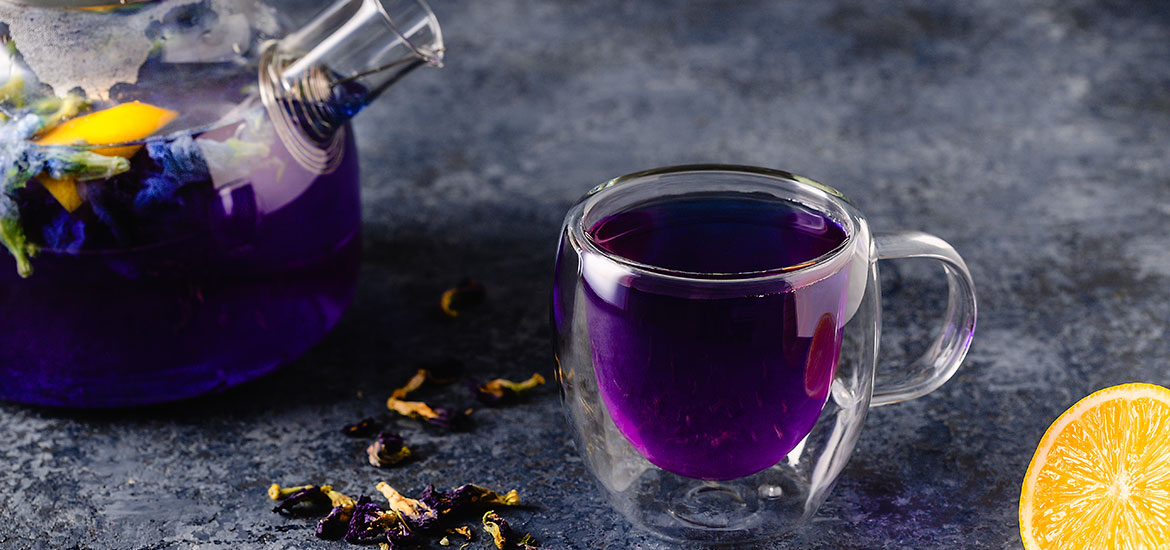Introduction
In the serene landscapes of Kenya, a unique and innovative tea variety is taking the tea industry by storm. Purple Tea, with its vibrant hue and impressive health benefits, is redefining the world of tea. This article delves into the intriguing world of Purple Tea, exploring its origin, cultivation, health advantages, and the growing popularity of this tea variety.
The Origin of Purple Tea
Purple Tea, scientifically known as Camellia sinensis, is a rare cultivar that originates from the picturesque highlands of Kenya. It is derived from the Assam tea plant, which has been cultivated in Kenya since the early 20th century. The leaves of this tea variety possess a distinctive purple hue, setting them apart from the traditional green or black tea leaves. This striking color is a result of unique genetic traits that have developed in response to the specific growing conditions of Kenya’s tea regions.
Cultivation and Processing
- Unique Growing Conditions
One of the primary reasons for the distinct purple color of Purple Tea leaves is the unique climate and soil conditions in Kenya. The high-altitude regions, rich volcanic soil, and ample sunshine create an ideal environment for the growth of Purple Tea plants. These conditions contribute to the high levels of beneficial compounds in the tea leaves. - The Oxidation Process
The leaves of Purple Tea undergo a partial oxidation process, which gives them their signature purple color. This process is carefully monitored to preserve the tea’s delicate flavor and retain its health benefits. The result is a tea that stands out for both its appearance and its distinct taste.
Health Benefits of Purple Tea
- High Antioxidant Content
Purple Tea is exceptionally rich in antioxidants, particularly anthocyanins and catechins, which are known to combat oxidative stress and reduce the risk of chronic diseases. These antioxidants help protect the body’s cells from damage and promote overall well-being. - Weight Management
Consuming Purple Tea has shown potential in aiding weight management. The tea’s active compounds may help boost metabolism and promote fat loss, making it a popular choice among those looking to maintain a healthy weight. - Improved Heart Health
Studies suggest that regular consumption of Purple Tea can contribute to heart health by reducing cholesterol levels and supporting cardiovascular well-being. Its antioxidant properties help in maintaining a healthy heart by improving blood circulation and reducing the risk of heart disease.
Popularity and Availability
Purple Tea has gained popularity not only for its unique flavor but also for its numerous health benefits. As a result, it is now available in various forms, including loose leaves, tea bags, and even health supplements. Its vibrant color and rich antioxidant profile have attracted the attention of tea enthusiasts and health-conscious individuals around the world.
Brewing the Perfect Cup
To make the most of Purple Tea’s unique characteristics, steep the leaves at a temperature of around 180°F (82°C) for 3-4 minutes. The vibrant purple hue will intensify as the leaves infuse, creating an enticing and aromatic cup of tea. For an even more refreshing experience, Purple Tea can also be enjoyed as iced tea by brewing it hot, letting it cool, and serving it over ice.
Conclusion
Purple Tea from Kenya represents a groundbreaking innovation in the world of tea. Its distinct flavor, impressive health benefits, and vibrant purple color make it a sought-after choice for tea enthusiasts and health-conscious individuals alike. As this unique tea variety continues to make waves globally, more people are recognizing the immense potential it holds. Purple Tea is more than just a beverage—it is a testament to the power of innovation and the richness of Kenya’s tea culture. Embrace the Purple Tea revolution and savor a cup of health, flavor, and uniqueness.
Frequently Asked Questions (FAQs)
- Is Purple Tea caffeine-free?
No, Purple Tea contains caffeine, though in moderate amounts. It provides a gentle energy boost without the jitters associated with high-caffeine beverages. - Can I find Purple Tea in local stores?
While it may not be as widespread as traditional tea varieties, Purple Tea is becoming more accessible. You can find it in select specialty tea shops and online retailers. - What does Purple Tea taste like?
Purple Tea has a delightful, earthy flavor with subtle fruity and floral notes. It’s a refreshing and unique tea experience. - Are there any side effects of consuming Purple Tea?
When consumed in moderation, Purple Tea is generally safe. However, excessive intake may lead to digestive issues or caffeine-related effects. - Can Purple Tea be enjoyed iced?
Yes, Purple Tea makes a fantastic iced tea option. Simply brew it, allow it to cool, then add ice and your preferred sweetener for a refreshing beverage.

